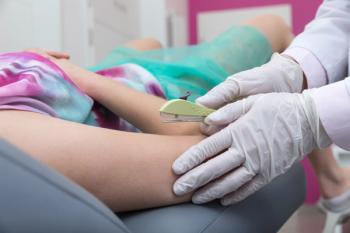
A small percentage of women whose noninvasive prenatal testing (NIPT) results were negative regretted taking the test and blamed themselves, according to a 1-year postpartum questionnaire survey.

A small percentage of women whose noninvasive prenatal testing (NIPT) results were negative regretted taking the test and blamed themselves, according to a 1-year postpartum questionnaire survey.

A public health screening program for Down syndrome in Quebec, Canada, found that cell-free DNA noninvasive prenatal testing (NIPT) could be implemented at the same cost as the current screening program, according to computer simulations.

The Centers for Disease Control and Prevention (CDC) has issued interim guidance for masking, social distancing, hand hygiene, and other infection control measures for people who are fully vaccinated for coronavirus 2019 disease (COVID-19).

A better understanding of the pathophysiology of uterine fibroids (UFs) will enable healthcare providers to deliver high-quality informed care to their patients, according to Ayman Al-Hendy, MD, PhD, a professor of ob/gyn at Pritzker School of Medicine, University of Chicago.

Some women are unable to choose noninvasive prenatal testing (NIPT), due to lack of insurance coverage, according to a pilot study in the Journal of Community Genetics.

Here's what to look forward to this week on Contemporary OB/GYN.

It was a busy week for the Contemporary OBGYN team.

Mike Tankersley, MD, MBA, discusses workflow tips that can help practices in their use of telehealth visits.

The two most common symptomatic types of uterine fibroids (UFs) are intramural and subserosal, according to an unpublished study from Jordan.

The single-dose vaccine is the third granted emergency use authorization in an effort to end the COVID-19 coronavirus pandemic.

Office of the Inspector General recommends CMS conduct targeted hospital reviews for possible upcoding violations.

Barry S. Zuckerman, MD, founder of Reach Out and Read, hopes to personalize the patient-doctor relationship with a new app called Small Moments.

President Biden promised that the federal government will have enough vaccine supply to vaccinate approximately 300 million Americans by the end of May.

The American Heart Association published a special issue to discuss current research in cardiovascular disease and outcomes in women.

Since 2012, when South Carolina's Medicaid program became the first state Medicaid program to separate payment for the immediate postpartum placement of long-acting reversible contraception (LARC) from global maternity payment, a significantly greater number of mothers are using LARC, especially among adolescents.

Diverse Voices: COVID-19 and the Health of Women, a virtual speaker series run by the NIH Office of Research on Women’s Health (ORWH), presented compiled research on sex and gender disparities during the COVID-19 pandemic. In addition to identifying issues of concern, the webinar offered actions to improve women’s health despite sex and gender disadvantages.

When it comes to willingness to switch contraception method, a team of researchers has looked into whether method type, satisfaction with use, and confidence in correct use were independently associated with switching intentions.

The mechanism of action (MOA) of emergency contraceptive pills (ECPs) is frequently mischaracterized among the general public, according to authors of a recent study published in the journal Contraception.

It was a very busy week for the Contemporary OB/GYN team.

A narrative review identified gaps in knowledge and considerations for informing sexually transmitted infection (STI) screening guidelines and treatment to improve the health of pregnant women and children.

A study of 30 women who had their post-cesarean section abdominal wall endometriomas (AWE) surgically removed found that the main symptom for detection and for surgery in two-thirds of cases was cyclic pain, whereas 13.3% of patients had no symptoms.

Preimplantation genetic testing for aneuploidy (PGT-A) is not associated with a difference in risk of fetal anomaly detected on mid-trimester anatomical survey, according to a study.

“Our results can further inform the debate on the future uses of NIPT and future policy of its implementation,” said co-principal investigator Hazar Haidar, PhD, a lecturer in bioethics at Université du Québec à Montréal (UQAM), Montréal, Canada.

Fractional microblative CO2 laser therapy was found both effective and safe in treating vulvovaginal atrophy short term, according to a study in the journal Menopause.

“Women show an accelerated loss of muscle mass around menopause, possibly related to the decline in estrogen,” wrote the authors.

What to look for this week on Contemporary OB/GYN®

It was a very busy week for the Contemporary OB/GYN team.

The study provides preliminary evidence of improvements in sexual function in breast cancer survivors who receive laser therapy.

A retrospective chart review has concluded that less than one-third of adolescents and young adults (AYAs) attended an initial follow-up visit after long-acting reversible contraception (LARC) insertion.

Take a poll and see how other ob/gyns are feeling about patient uptake of the COVID vaccine.